ABURY meets PortrAid Photographer Xiomara Bender
Posted on 20 February 2018
Xiomara Bender, born in 1987 in Basel and now living in Berlin, is known for her unmistakable visual language. During her travels she documents people in everyday situations, always with empathy and respect for the individual. Xiomara Bender‘s creative work has been honoured with a number of national and international prizes - including the C/O Berlin Foundation "Close Up!", the London Fine Art Photography Award and the German Photo Book Prize 2018 in silver for her illustrated book "North Korea. The Power of Dreams ", published by the renowned Kehrer publishing house in 2016.
Xiomara Bender has already developed a fascination for the world and travelling it at a young age. When she was 17 she left her home country to live in India and finish high school there, before later on moving to Berlin without a return ticket to follow her dreams. With her uncompromising freedom from convention, Bender thrives on an art in which ignorance is not an option. One in which tolerance and authenticity are a form of expression. This unpretentious and authentic approach to documenting people around the world and her passion for foreign lands and culture made her the perfect photographer for the third PortrAid series, initiated by the ABURY Foundation and Thomas Rusch: For "Get Art. Give Work." Xiomara Bender photographed Ethiopian weavers in Addis Abeba. 38 resulting PortrAids are for sale and allow the buyer to finance a loom for the depicted artisan and his family.
Her passionate character becomes visible in this interview, in which we touched on Xiomara Bender's career, the value of cultural exchange, and her experiences in Ethiopia.
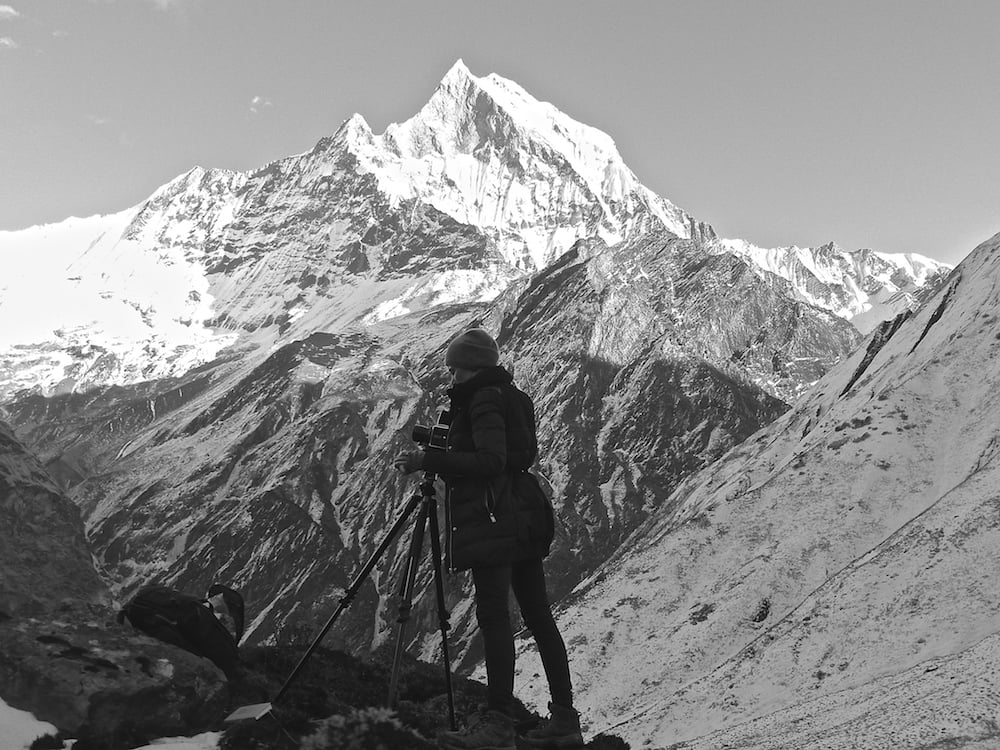 © Photo via Xiomara Bender
© Photo via Xiomara Bender
Xiomara Bender, start by tagging yourself with three words.
Curious, passionate, thoughtful
At ABURY, everything is handmade, because we believe that “hands tell stories“. What do your hands tell about you?
The story of a girl that was lucky enough to witness an exceptional childhood marked by extensive travelling from early age on to some of the most remote and pristine landscapes, populations and nations of this earth. In that way, I was exposed to cultures and people very different to my own at an age that taught me to blend in naturally and adjust my perspective to a new standpoint that would put me not above, but at level with the people around me. I guess this has helped me gain unique photographic insights by using a universal language marked by mutual respect and a natural curiosity. I expect things to be different when I go somewhere new, so I would always rather be enlightened instead of bewildered, enchanted instead of surprised about what I would find.
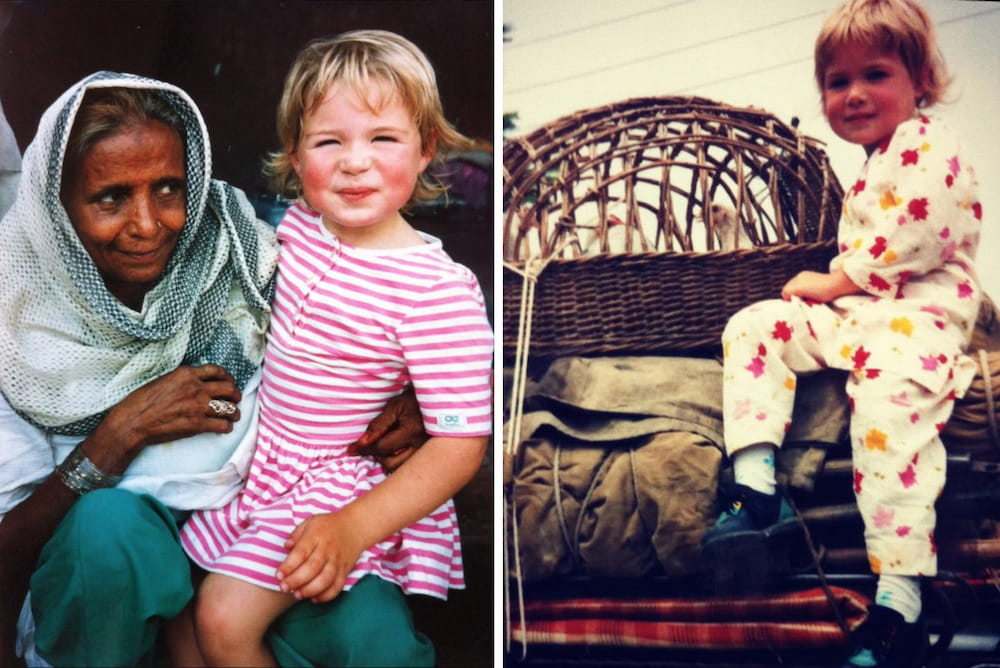 © Photos via Xiomara Bender
© Photos via Xiomara Bender
What is the last thing you created with your hands (that did not involve holding a camera)? :)
Actually hands and feet are my most favourite body parts. I think that they make us quintessentially human and that they enable us both to connect with others and to be ourselves. So I keep creating relationships.
If you could choose, what would you like to be able to do with your hands?
There is this hidden dream I have and I dream it really vividly from time to time to be a real rock and pop star performing at Woodstock - but believe me I really cannot sing. So apart from the voice that would be needed I would love to play the guitar like Eric Clapton and write songs with my hands like Neil Young.
Looking back on everything you’ve done in your life - What is the one thing you are proudest of?
I guess that would be my book “North Korea. The Power of Dreams”, which Kehrer published end of 2016. My hope is that it serves to create empathy for people different to our own and put an end to the arrogance and superiority we’ve so long pursued in the western world. It is via the emotion captured in an image that we connect and begin seeing individuals rather than their nations. I intend to help create a basis from which a dialog may arise that will make a peaceful revolution more likely.
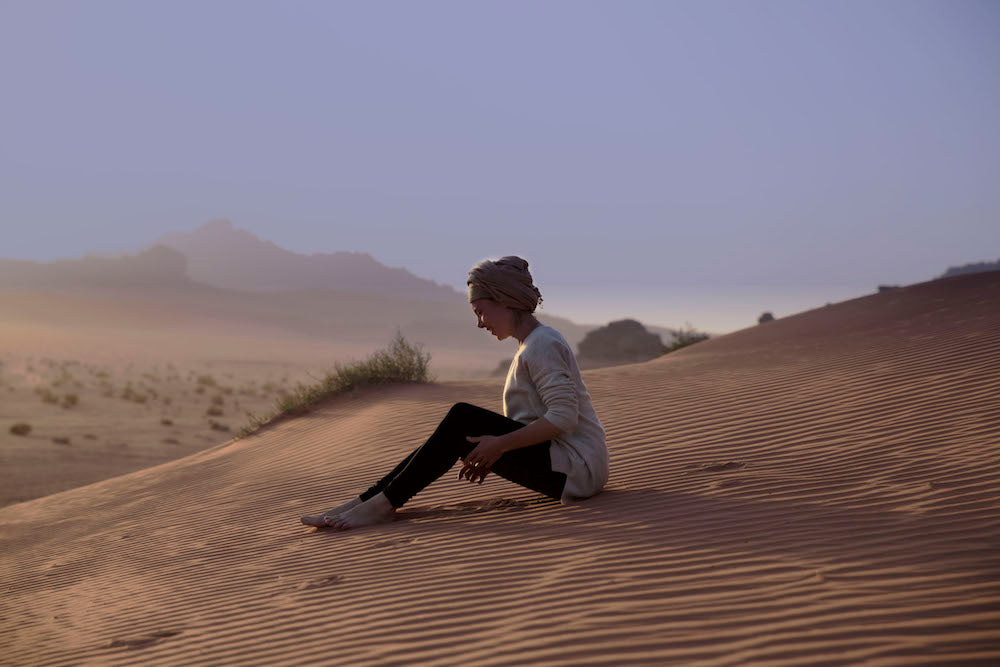 © Photo via Xiomara Bender
© Photo via Xiomara Bender
“One of a Mind” underlines our strong belief in equality and the value of sharing. How does intercultural exchange benefit our global society in your eyes?
It teaches us to move outside of our own comfort zone in order to interact and work not with strangers, but with people that share the same planet earth and who therefore share the same responsibility to preserve what we want future generations to equally enjoy. With that global mission it is fundamentally important to treat each other with respect and recognise that we are all equal and that we all share the same fundamental human desires. It is only via intercultural exchange that we learn to drop our prejudices and expectations of others and instead compels us to unite in our common global quest for a better future.
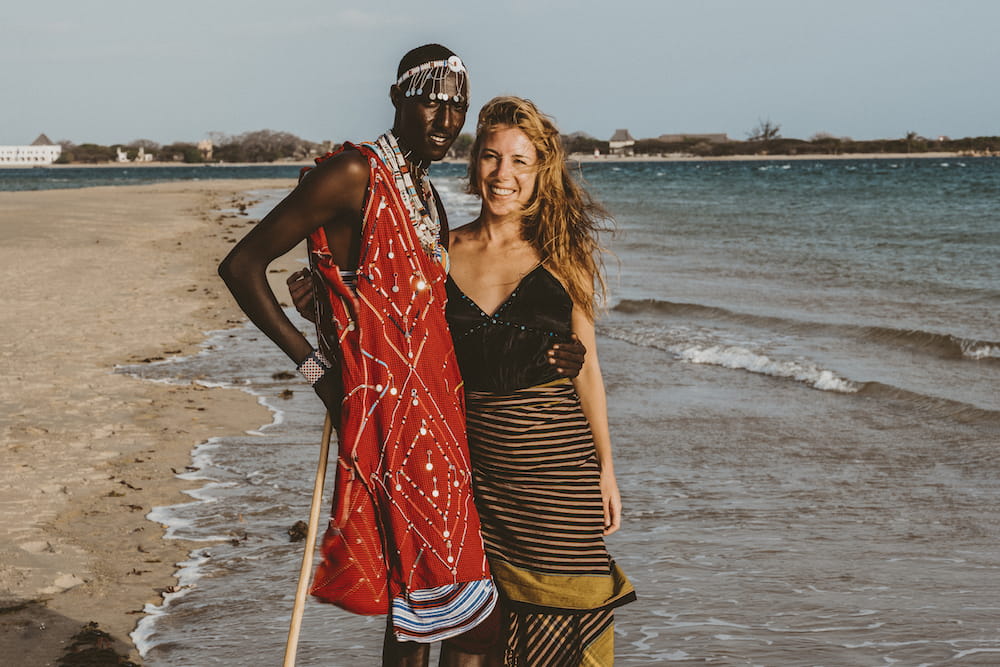 © Photo via Xiomara Bender
© Photo via Xiomara Bender
…and more precisely: How does intercultural exchange benefit art and photography?
It opens the doors to a global stage of art where everybody contributes, shares, participates, marvels and engages – a forum where art is no longer confined to borders but enlarged by the fantasy and imagination of the world around it.
Last year you went with our PortrAid team to Ethiopia to shoot the new series of portraits. What differentiates Ethiopia from other countries? What does it have that no other culture has?
African history records only two countries which are considered to have survived the scramble for Africa and remained independent during the invasion, partitioning and forceful ruling of Africa by European nations and one of them is Ethiopia. Not even Italy succeeded in colonising the entire country, partly due to Ethiopian’s strong cultural identity.
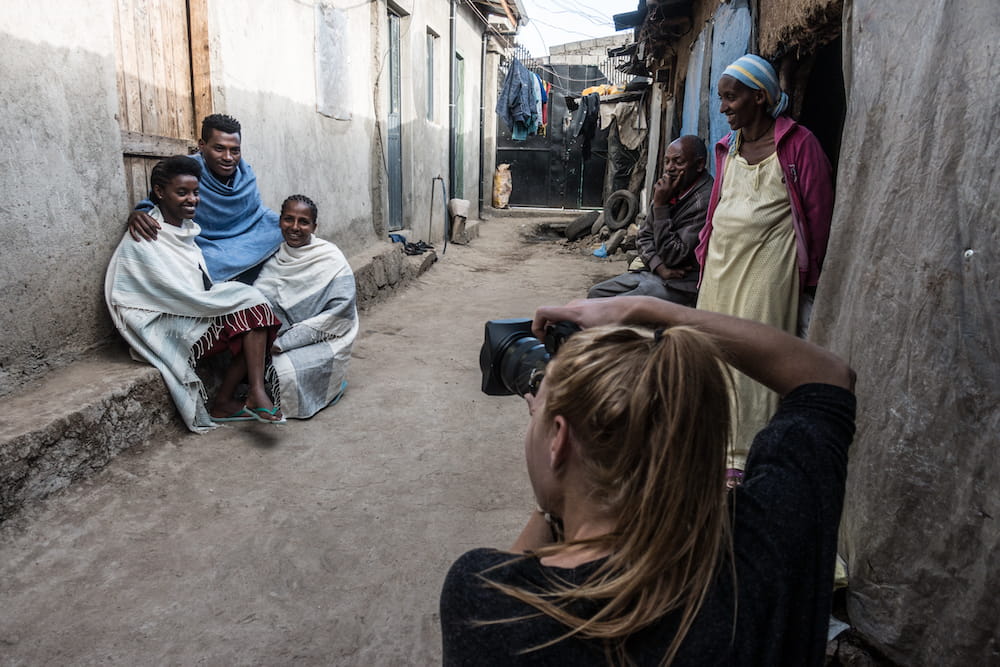 © 2017 PortrAid + Thomas Rusch
© 2017 PortrAid + Thomas Rusch
Also, quite different to the surrounding African countries, Christianity already spread and experienced a rising popularity in Ethiopia as early as in the 4th century, marking Ethiopia as one of the world’s oldest Christian countries. Until today, the Ethiopian-orthodox church accounts for the most important religious belief amongst the Ethiopian population. Moreover, Ethiopia is the base of the headquarters of the African Union (which incorporates 53 states and functions as kind of an “EU”) and is one of the world’s most ancient nations with a thousand-year-old cultural history.
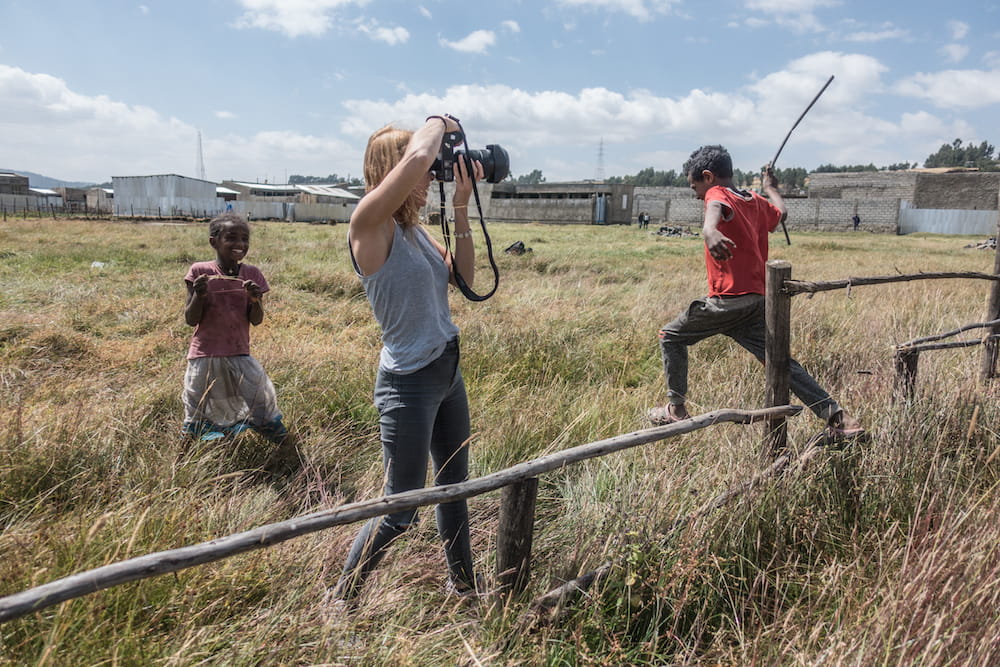 © 2017 PortrAid + Thomas Rusch
© 2017 PortrAid + Thomas Rusch
What story do your portraits tell the viewer about the people in Ethiopia?
Human dignity is untouchable. Whoever really wants to help has to move beyond the mere statistics hiding the suffering of the unknown. The faces of the portrayed people show us their willingness to cooperate and share their story with the ultimate hope to bring about a more just, equal and dignified future.
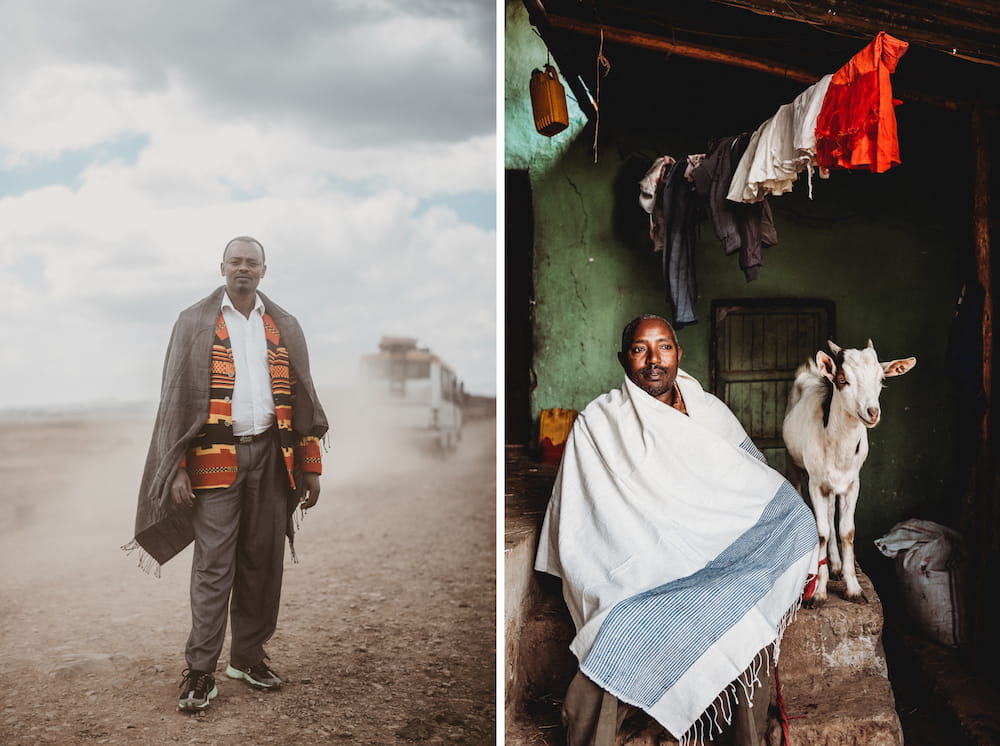 © 2017 Xiomara Bender for PortrAid
© 2017 Xiomara Bender for PortrAid
On your website you say that “photography is a copy of a relationship”. Can you explain what you mean?
It is not simply a picture but both sides of the lens captured and maintained with respect and trust. It is my passion to search for strong bonds between the visible reality and the invisible intimacy. Therefore I try to be open, photography is a give and take. The picture finds me and I try to capture what I see. If there is the truth to find, I try to find it in photography.
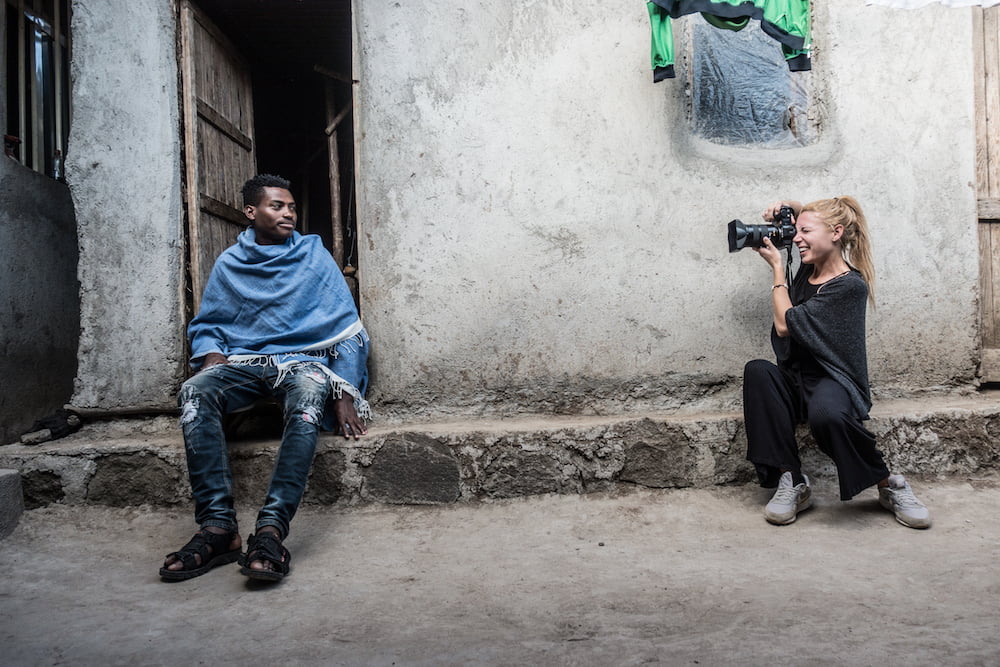 © 2017 PortrAid + Thomas Rusch
© 2017 PortrAid + Thomas Rusch
Talking about other senses - how would you describe the “Tastes of Ethiopia” and what is your favourite?
Like most other nations that stem from a thousand-year-old cultural heritage (like India, China etc.), Ethiopia is home to a very distinct and rich food culture very different to the rest of the Sub-Saharan African cuisine. “Injera”, a sourdough-bread made from a locally-grown cereal “Teff” is a highly respected staple food that accompanies mostly every meal. Personally, being a vegetarian I was pleased to find a diverse and delicious range of vegetarian dishes and I liked the idea of not being allowed to eat meat on Wednesdays and Fridays, out of religious reasons.
Another, very famous “taste of Ethiopia” is surely that of coffee. Ethiopia is not only considered the “birthplace”of coffee, but it remains to be an important part of Ethiopians every-day life until today. Accompanied by an extensive ceremonial procedure, the beans are roasted, grounded and finally brewed. The intense and flavourful smell of coffee, released during the process, infiltrates every corner and beguiles your senses all the time.
Lastly, moving to fashion. Which ABURY product would suit your style best and why?
That would be the colourful scarves made by Sabahar in Ethiopia. You can wear them in winter to keep you warm. You can wear them in summer as a Kikoy like worn by the Masaai. You can use it as a towel on the beach and even as a turban on your head. Since I only travel with hand luggage and temperatures sometimes vary from -20 to 40 degrees it’s the perfect accessory.



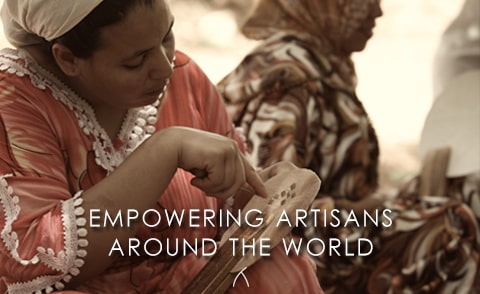
0 comments